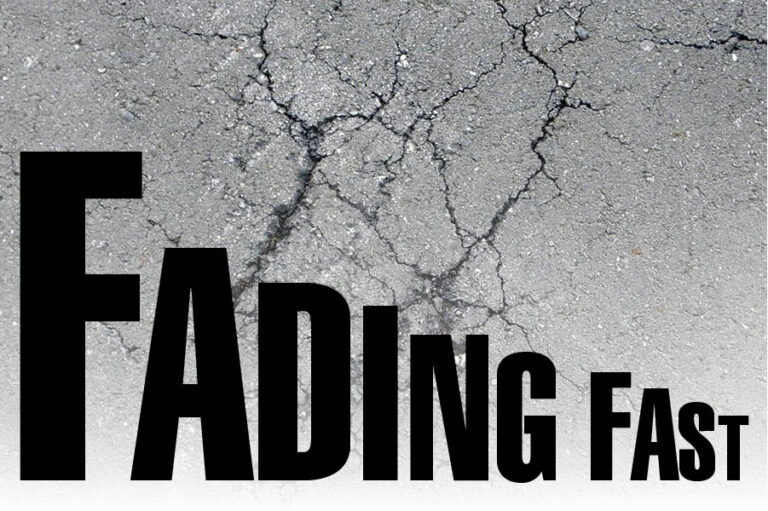The year 2020 has been a strange year for several reasons, but there’s one factor that is as normal as can be. Political posturing and bickering in Washington haven’t slowed down at all, even while Congress was shut down over the COVID-19 pandemic.
Hopes that Congress would pass an election-year highway funding bill to replace the FAST Act that expires on September 30 are dwindling as legislators continue to battle over another round of economic stimulus payments. But Truckload Carriers Association Vice President of Government Affairs David Heller isn’t surprised.
“Between MAP-21 and the FAST Act, there were 13 continuing resolutions issued,” he explained. “I don’t see an infrastructure program getting done before the election.”
Both parties have expressed concern over America’s crumbling infrastructure. President Donald Trump claimed the issue during his presidential campaign and has made several attempts to stimulate infrastructure legislation. “Infrastructure Week,” an annual period designated by Trump to focus on the issue, has turned into a “‘Groundhog Day”-style fever dream doomed to be repeated,” the New York Times said in a May 22, 2019 article.
The same article states, “Long ago, the political and pundit class began to recognize any mention of infrastructure-themed events as a catchall joke symbolizing any substantive — if pie-in-the-sky — policy objective destined to go nowhere.”
The need to address infrastructure is clear. The most recent “Report Card” from the American Society of Civil Engineers (ASCE) claimed that it would take $420 billion to bring current roads up to acceptable standards, plus another $123 billion for needed bridge repairs. That’s $543 billion, just to fix roads and bridges. That was in 2017. The next Report Card will be published in 2021.
The last few attempts at an infrastructure bill have indeed gone nowhere. That will also be the fate of the most current attempt, the massive $1.5 trillion Moving America Forward Act passed on a partisan vote by the House of Representatives on July 1. It was the Democratic response to an attempt by Senate Republicans to include a $287 billion infrastructure initiative in the first COVID-19 economic stimulus package.
Senate Environment and Public Works Committee Chairman John Barrasso (R-WY) attempted to get his bill (S. 2302) added as an amendment to a stimulus bill that had already been passed by the House. This move was opposed by Senate Minority Leader Chuck Schumer (D-NY).
The Moving America Forward Act, on the other hand, started as a $494 billion infrastructure bill in the Highways and Transit Subcommittee of the House Committee on Transportation and Infrastructure. Dubbed the Investing in a New Vision for the Environment and Surface Transportation in America Act, or INVEST in America Act, the bill quickly gained support from trucking industry organizations.
During the markup phase in committee, where amendments are considered, the committee voted to add an amendment that would increase minimum financial responsibility levels for motor carriers from the current $750,000 level to $2 million. The amendment passed, and industry groups began pulling their support for the Act.
TCA’s Heller questioned the $2 million amount. “We looked at $2 million, and we wonder where that comes from,” he said. “If we’re looking at the Consumer Price Index (CPI) since 1984, the amount should be $2.3 million, so we wonder why they rounded down.”
Heller also said that any discussion of increasing minimum financial responsibility limits should include a discussion on tort reform or some limits on “nuclear” jury verdicts.
Before that discussion could take place, House Democrats folded the INVEST in America Act into the much larger Moving America Forward Act. The enlarged bill includes $100 billion for school building and improvements at high-poverty schools, another $100 billion to build or repair existing low-income housing, $100 billion for broadband internet infrastructure, $65 billion in water infrastructure, $70 billion to expand renewable energy in the nation’s electrical grid, $30 billion for hospitals, and $25 million for the U.S. Post Office to acquire a zero-emissions fleet. Also included are $100 million for transit projects, slanted toward zero-emissions equipment and $29 billion for Amtrak.
House Ways and Means Committee Chairman Richard Neal (D-MA-1), in a June 18 address, touted the bill’s ability to “create new green, good-paying union jobs.” He said, “An investment of this magnitude has been necessary for years, but it’s more urgently needed than ever as we work to recover from the COVID-19 crisis.” Addressing Republican opposition, he said, “We fully expect them to meet us at the table and get this groundbreaking legislation signed into law.”
Representative Bill Pascrell, Jr. (D-NJ-9), a co-sponsor of the legislation, said this after the bill cleared the House: “Our roads are cracked, our bridges are crumbling, our water mains are exploding, and our planet is warming at unprecedented speeds. The legislation we passed invests in American transportation and energy with a keen eye on the future.”
Pascrell also touted the inclusion in the larger bill of his “Incentivizing Offshore Wind Power Act,” which has failed to gain passage in every session of Congress since 2009.
Senate Majority Leader Mitch McConnell (R-KY) wasn’t as enthusiastic. “House Democrats appear addicted to pointless political theater,” he said. “So naturally, this nonsense is not going anywhere in the Senate. It will just join the list of absurd House proposals that were only drawn up to show fealty to the radical left.”
McConnell claimed the legislation was a “thousand-page cousin of the Green New Deal, masquerading as a highway bill.”
Sen. John Barrasso (R-WY), chairman of the U.S. Senate Committee on Environment and Public Works, slammed the House bill, saying, “There’s nothing bipartisan about it. It’s completely partisan.”
A June 29 letter to the House of Representatives from the U.S. Chamber of Commerce lamented the partisan nature of the bill, pointing out that “other congressional committees have demonstrated that bipartisan consensus is possible on surface transportation reauthorization.”
He called the addition of proposals beyond core surface and water infrastructure programs “subtraction through addition.”
On June 29, the White House issued its opinion of the bill in a statement of administrative policy. “This bill is problematic for several reasons. It is heavily biased against rural America. It also appears to be entirely debt-financed. And it fails to tackle the issue of unnecessary permitting delays, which are one of the most significant impediments to improving our infrastructure.” The statement also said the bill “is full of wasteful ‘Green New Deal’ initiatives.”
Trump gave a clear message that the bill will be vetoed if it crosses his desk.
In response to White House claims that the legislation is entirely debt-financed, House Speaker Nancy Pelosi (D-CA-12) said, “With the interest rates where they are now, there’s never been a better time for us to go big.”
The White House noted that Trump has repeatedly called on Congress to send him bipartisan infrastructure legislation. “Unfortunately, H.R. 2 is not a serious proposal and fails to answer his call,” the statement concluded.
The size and scope of an infrastructure bill to replace the FAST Act may well depend on who controls Congress and the White House after the November elections. Chances of anything getting done before then are fading fast.
Cliff Abbott is an experienced commercial vehicle driver and owner-operator who still holds a CDL in his home state of Alabama. In nearly 40 years in trucking, he’s been an instructor and trainer and has managed safety and recruiting operations for several carriers. Having never lost his love of the road, Cliff has written a book and hundreds of songs and has been writing for The Trucker for more than a decade.











